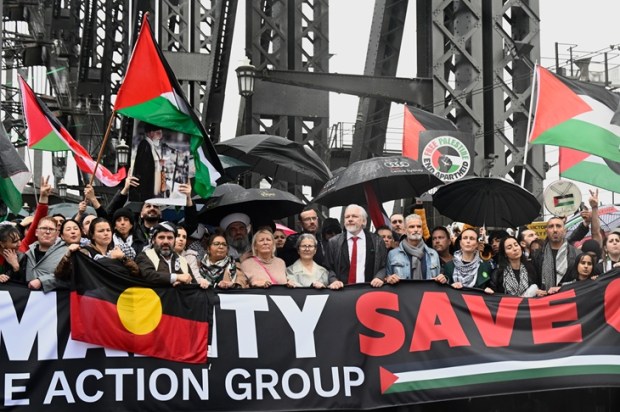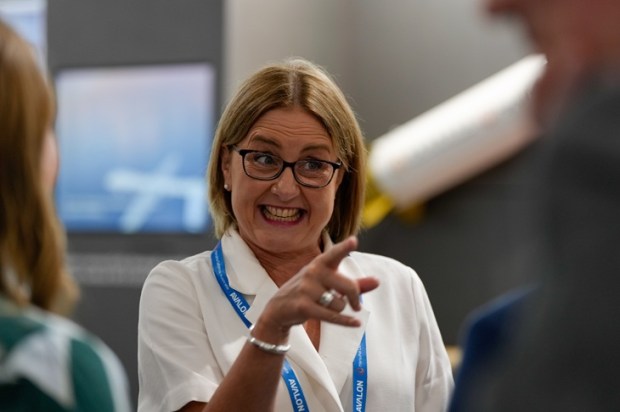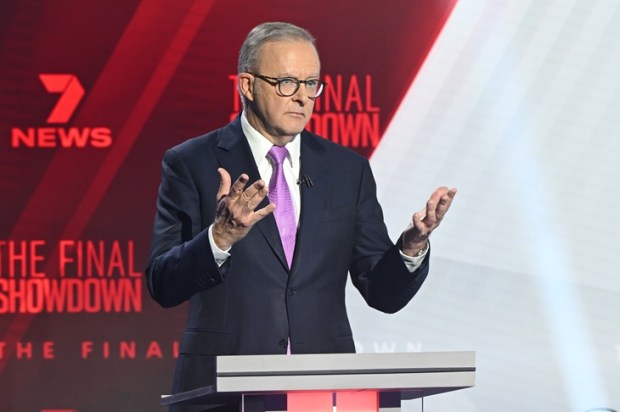Last week, the Australian government declared war on 15-year-olds watching MrBeast.
From December 2025, a world-first social media ban will lock under-16s out of platforms like Instagram, Facebook, TikTok, Reddit, X, Snapchat, and now YouTube – freshly added to the government’s digital hit list.
The Albanese government claims it’s shielding kids from ‘predatory algorithms’ and harmful content.
But in reality, this policy is a Trojan horse for increased surveillance that puts us on a dangerous slippery slope to censorship.
It fundamentally reduces young people’s freedom to access information and participate in the online world.
It’s also a patronising move that assumes parents can’t do their job and ignores digital literacy as the real solution.
Communications Minister Anika Wells defended YouTube’s inclusion by saying, ‘We can’t control the ocean, but we can police the sharks’ – referring to Google and other Big Tech companies.
A more accurate analogy would be: ‘Instead of teaching young people how to swim, we’re banning them from the water altogether.’
If I were Big Tech, I’d start throttling politicians’ social media reach, shadow-banning their accounts, or blocking political advertising and watch the backflips ensue.
YouTube’s inclusion is particularly laughable.
Unlike TikTok or Instagram, YouTube functions more like Netflix than traditional social media – it’s primarily a video-sharing platform that serves as a fantastic source of education and entertainment.
Banning young people from these platforms cuts them off from vital sources of connection, creativity, learning, and support, especially for those who feel marginalised in their offline lives.
Moreover, the YouTube ban only prevents account creation – kids can still watch videos without accounts – so we’re really just killing their ability to create, engage, and develop the digital literacy skills they desperately need.
It’s a classic case of older decision-makers, such as eSafety Commissioner Julie Inman Grant – let’s call her eSafety Karen – misunderstanding new technology and opting to implement bans based on the precautionary principle rather than evidence-based solutions.
If children don’t understand how these platforms manipulate them, they’ll never be safe online – or offline.
To enforce the social media ban, platforms will need to verify the age of all users, not just kids.
As is the nature of the slapdash policy we’ve become accustomed to, we are yet to be told how this will be implemented.
While it has been suggested that face-scanning technology will be used, current technology cannot accurately determine people’s ages, leaving government-approved identification as the likely option.
This means enforcing the ban will require biometric data or digital IDs, essentially de-anonymising the internet for everyone.
Remember being barred from restaurants during Covid unless you showed your vaccination pass? Now imagine being banned from social media without verifying your identity – all for the ‘greater good’, of course.
The UK’s Online Safety Act, which took effect last month, offers a glimpse of the futility of such bans.
The Act mandates age checks for adult content, with platforms like Discord, Xbox, and Spotify already rolling out face-scanning requirements.
Already, thousands have flocked to VPNs to hide their location and avoid these checks.
As Nigel Farage noted about the UK law, it’s a dystopian threat that would make Xi Jinping ‘blush’.
Our ‘Handsome Boy’ Albo seems hell-bent on outdoing him.
Australia’s ban is worse – it targets entire platforms.
And how long until VPNs, which kids will inevitably use to dodge this ban, are themselves added to the increasingly long list of banned things…?
If the government was really concerned about children, they would be banning gambling ads from sport, sugary drinks, McDonald’s, or making their parents spend hundreds of dollars on power bills.
But that would be hard.
Yes, social media can harm mental health – multiple studies link it to anxiety and body image issues. But banning kids isn’t the answer.
Real solutions involve forcing platforms to be transparent about their algorithms, giving parents better tools, and teaching digital literacy.
Instead of empowering families, this ban lets parents off the hook of responsible parenting and positions the government as a literal nanny-state or ‘parent of last resort’.
The Coalition could seize this moment by pledging to repeal the ban, championing small government and free speech. If they don’t, perhaps a ‘Reform Australia’ might, riding the growing demand I detect for a party that differentiates itself with real ideas.
The road to a surveillance state is paved with good intentions, but when even the Wiggles are against your policy, you know you’re on the wrong side of history.

























